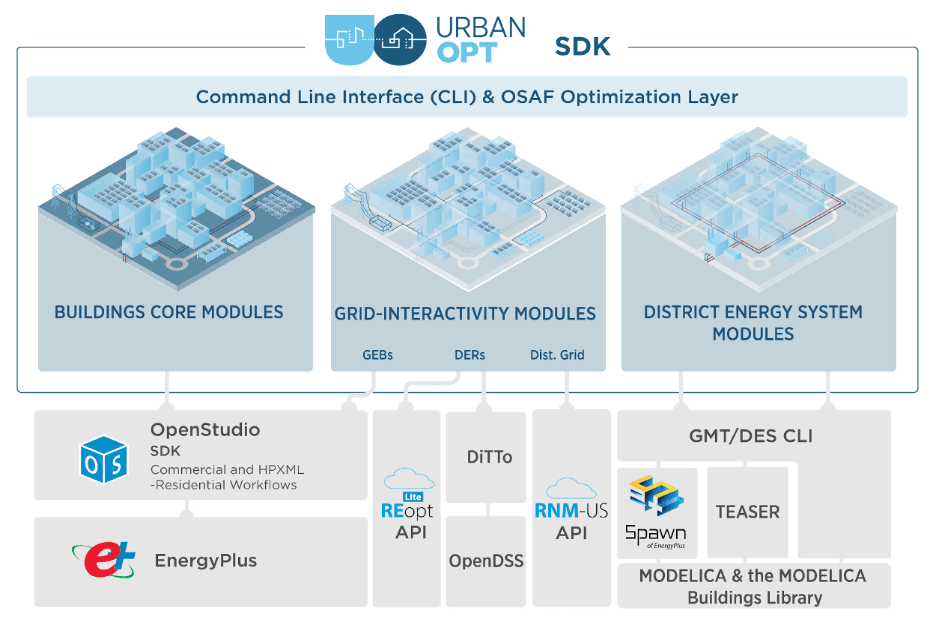Project's Main Website
This project is supported by PI Wangda Zuo at Pennsylvania State University.
For more information, please visit the project’s webpage at the PSU’s SBS Laboratory here.

URBANopt Advanced Analytics Platform for high-performance buildings and community energy systems.
Project Description
District heating and cooling (DHC) systems commonly involve a central plant that distributes steam, hot water,
or chilled water to buildings by means of insulated pipes. This is a promising and long-established solution
for community sustainability, yet it remains underutilized, particularly in the United States. By sharing
thermal resources, DHC can reduce the carbon intensity of heating and cooling in buildings, reduce energy costs,
improve air quality, allow high penetration of renewable energy sources, recycle waste heat from industrial and
commercial activities, and improve the resiliency of communities. In collaboration with the National Renewable
Energy Laboratory (NREL) and Lawrence Berkeley National Laboratory (LBNL), the goal of this project is to create
a new software analysis platform that leverages the Modelica language in order to enable developers of community-scale
construction projects to effectively evaluate and optimize DHC systems. The models will be publicly released in
LBNL’s Modelica Buildings Library and used by NREL’s URBANopt.
Collaborators
Sponsor
U.S. Department of Energy